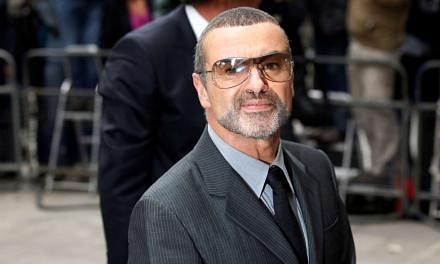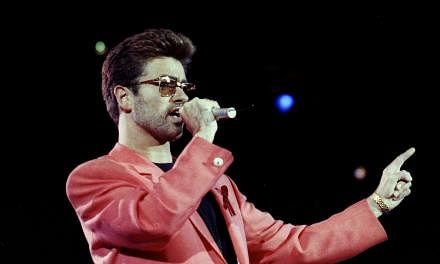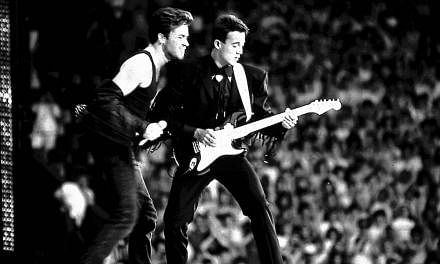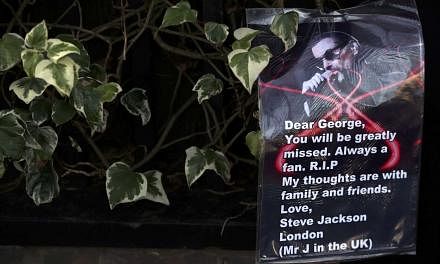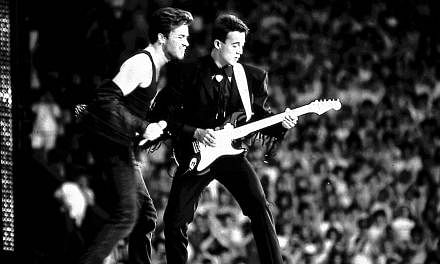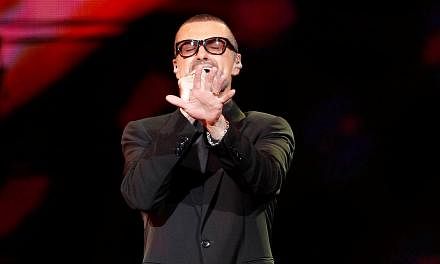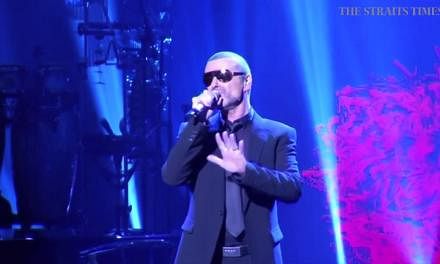LONDON (NYTIMES) - Adam Gearon met George Michael when they were children living in the same village in Hertfordshire, England.
"His music was therapeutic," Gearon recalled on Monday, standing outside Michael's home in the Highgate section of North London. "His words helped me through my personal struggles, and I associated songs with different times of my life."
In the village of Goring-on-Thames, where Michael was found dead at his country home on Sunday, David Beddall, the churchwarden at St Thomas of Canterbury Church, had wondered why Michael had not attended the midnight Christmas service, as he did last year.
"We thought he wasn't at home," Beddall said. "He had his garden decorated with lights, and you could see them from the bridge. It's quite an impressive sight."
Simon Napier-Bell, who managed Wham! - the duo of Michael and his musical partner Andrew Ridgeley - in the 1980s, until Michael left for a solo career, learnt of his former client's death while in Southeast Asia.
"Just finishing dinner next to the Sarawak River in Borneo, slightly tipsy and feeling good, and I think I'll leave it that way," he wrote in an email Monday.
The death of Michael - famous for hits like Wake Me Up Before You Go-Go, Faith and Careless Whisper - at age 53 stunned celebrities and fans, but also the many people who knew him in England, where he spent most of his life.
Amanda Holland, a neighbour of Michael in Goring-on-Thames, in Oxfordshire, and an amateur actor, once invited him to a play in which she was performing.
"He's an international superstar - I thought, there's no way he would come to a local thing," she recalled. "But he did, and he was fabulous, and he was kind and he was generous."
Tom Fleming, 48, who had met Michael several times, knelt to lay a bouquet in front of the gate of the singer's London home Monday morning, weeping quietly. "He was always a happy, positive, loving person that shone through all the time," Fleming said.
Mitsuya Fujimoto, a neighbour and music producer who shared a parking space with Michael in London in the 1990s, said they had become friends after someone broke into Fujimoto's Land Rover, apparently thinking it was Michael's.
"He was very, very quiet," said Fujimoto, 56, a former producer for the Japanese band Chage and Aska. "He was always very, very reserved. He didn't like the attention. He was very humble."
Michael came out as gay in 1998, after the end of a protracted legal battle with Sony Music and shortly after he had been arrested on charges of lewd conduct in a men's room in Beverly Hills, California. He had long been a supporter of Aids prevention and gay rights.
Michael was famous by age 20. But his music career slowed in recent years, a period that included several painful episodes in his life.
In a 2004 interview with the British edition of GQ, he spoke candidly about losing his partner, Anselmo Feleppa, a Brazilian, to Aids in 1993. At the time, he was still in the closet, and the antiretroviral drugs that helped Aids become a manageable disease, and not necessarily a fatal one, had yet to become widely available.
"I'm still convinced that had he been in the USA or London, he would have survived, because just six months later, everyone was on combination therapy," Michael said in the interview. "I think he went to Brazil because he feared what my fame would do to him and his family if he got treatment elsewhere. I was devastated by that. The idea that he had the opportunity to go somewhere better but wouldn't take it because of my fame makes me feel very guilty."
Later, Michael developed a relationship with Kenny Goss, a United States businessman, whom he met at a Los Angeles spa in 1996. When he came out to his mother and disclosed the relationship, she was supportive, but she also told him that she had terminal cancer; she died in 1997.
Michael and Goss subsequently opened an art gallery in Dallas; they split up in 2009 but remained friends.
Michael had several brushes with the law and several health scares. In 2007, he was sentenced to community service and barred from driving for two years after he had been found asleep at the wheel and under the influence of marijuana.
In 2010, his driver's licence was revoked for five years after he drove a Land Rover into the side of a photo shop, denting the wall; he spent four weeks in jail. In 2011, he nearly died from a bout of pneumonia. Doctors had to perform a tracheotomy.
Paul Gambaccini, a radio and television presenter who had known Michael for decades and represented him during a 2011 tour, said he was not surprised by the news "because he had the close brush with death with the tracheotomy and pneumonia."
He called Michael "an incredible talent," adding, "He was an astonishingly honest writer in that his songs reflected himself utterly."
In a 2007 interview with the BBC talk-show host Michael Parkinson, Michael acknowledged his "self-destructive behaviour," which he partly attributed to the pain of his mother's death.
While he said that he was "absolutely appreciative of just how privileged I am," he also spoke of "the kind of pain" that "makes you physically incapable of doing anything about it" and "the effort of putting one foot in front of the other."

